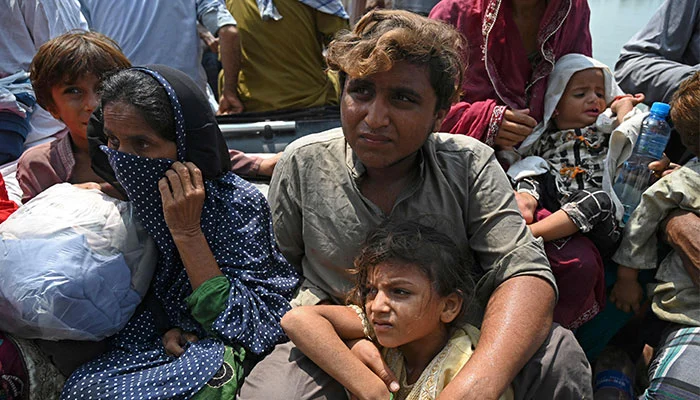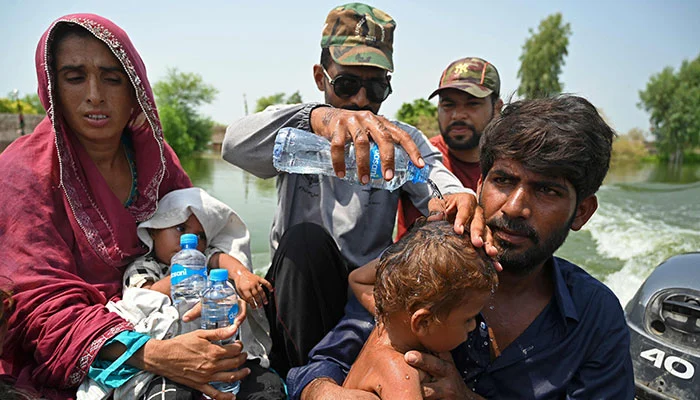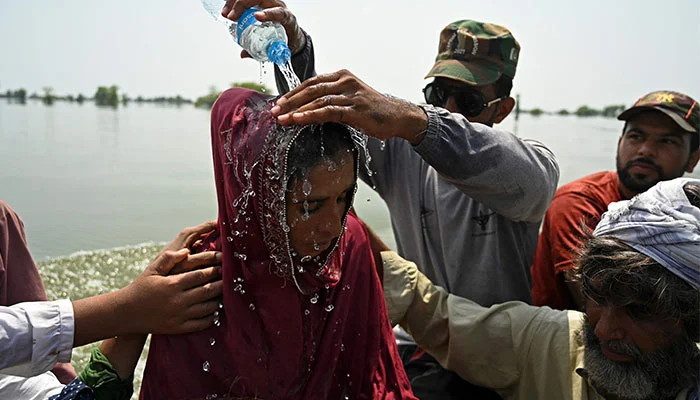As a result of the devastation caused by the monsoon rains, the 400 people who make their homes in the flooded village of Basti Ahmad Din face the prospect of starvation and illness.
However, they have disregarded the requests that the area is evacuated.
Residents of the hamlet told AFP that moving to a relief camp would be a “slap in the face” to the “respect” of the women in the community because it would require them to engage in social interaction with men in settings other than their own houses.

There are no female residents of Basti Ahmad Din, and therefore none of them hold any political office.
Shireen Bibi, who is 17 years old, gave the following response when she was asked if she would want to travel to a dry land camp for safety: “It is up to the community elders to decide.”
Villagers like those in Basti Ahmad Din are struggling with the destruction of their houses and ways of making a living as a result of devastating monsoon rains that inundated huge regions of Pakistan during the summer of 2017.
These storms have been ascribed to climate change.
In the Rojhan district of the Punjab province’s Basti Ahmad Din, more over fifty percent of the town’s original ninety homes were destroyed.

As a result of the flooding, the dirt road that used to lead to the closest city is now completely drowned, and the cotton harvests that used to surround the town as the rains began in June are now rotting away in the fields that are completely submerged.
The residents can only get to the outside world in rickety wooden rowboats, which they use to go out and buy food and supplies.
They are also quite pricey, with operators asking exorbitant rates.
Families in Basti Ahmad Din have pooled together to ration what little wheat and grain they were able to save from the floods.
Volunteers who have sent assistance supplies to the community have begged the villagers to leave, but they have refused.
“We are Baloch. Baloch doesn’t allow their women to go out.” Muhammad Amir, a local of Basti Ahmad Din, made this statement about the majority ethnic group.
The Baloch choose to stay there and hunger than risk leaving their family behind.
So-called “honor” killings are commonplace in conservative, severely patriarchal sections of Pakistan, where women are subject to harsh social norms.
Mahnur is MS(development Studies)Student at NUST University, completed BS Hons in Eng Literature. Content Writer, Policy analyst, Climate Change specialist, Teacher, HR Recruiter.










